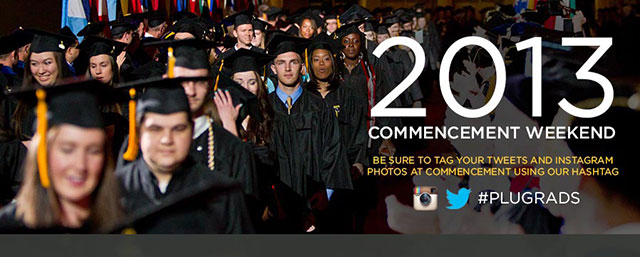Page 130 • (1,317 results in 0.17 seconds)
-

you walk into President Belton’s office on the first floor of Hauge the first thing that might catch your eye is the large sign behind his desk. Painted in PLU’s signature black and gold, and in all caps, it says “SEE THE POSSIBILITIES.” It’s a statement piece that ties together the collection of PLU-branded adornments throughout the room. More importantly, it’s a daily reminder. Belton says he takes a good look at it every morning before sitting down at his computer. “There’s a reason I have
-
, regardless of storage or accumulation location, must be labeled with the date the first item went into the container. Accumulation, regardless of location, is limited to one year. Electronic Wastes This applies to televisions and computer monitors that contain cathode ray tubes (CRT). CRTs designate as dangerous waste, but can be managed under a conditional exclusion according to publication 02-04-017. Other electronic wastes that designate as dangerous waste can also be managed under this program. These
-
California, Riverside April 5, 2019Rihana S. Mason, Ph.D."Exploring Vocabulary Assessment Issues in Young Children from Diverse Linguistic Backgrounds"Georgia State University November 16, 2018Maria Guarneri-White, Ph.D."Are Your Friends Making You Sick? Co-rumination and Peer Victimization in Two Adolescent Samples"Psychology Department, Pacific Lutheran University October 12, 2018Jennifer M. Roche, Ph.D."Affective Convergence of Intonational Punctuation During Text-Based and Computer-Mediated
-
college fairs? Where do I get computer help? Where can I find updates about the Coronavirus? Upcoming Events loading events... All Events News loading news... All News ePass Apps Bookmarks ePass Apps Gmail Banner Care Form Sakai WordPress Calendar I&TS Help Desk I&TS Bookmarked Pages Bookmark your favorite pages for quick and easy navigation throughout the site. [Load from ePass] Button: Sign into ePass and load your saved favorites. This allows you to keep your favorites for any browser you are
-
with the debate team and he appreciates the breadth of his education, beyond his computer science major. He knows that being a better writer, for example, will help communicate his ideas in business. Originally, he wanted to be a doctor — “the definition of a solid job,” he says. It took some effort to convince his mom that he could build a company and still be a success. Now his parents, who gave him his love of learning and education, are proud. “I’m very persistent when I want something,” he
-

in August to encounter this new adventure and begin my next chapter. I would not have been able to pursue this exciting opportunity if it had not been for PLU and the opportunity it gave me to study aboard, volunteer, and realize my vocation of service. Craig Chamberlain, Bachelor of Science in mathematics with a minor in computer science Why PLU? After visiting campus and meeting with various students and staff I fell in love. In December of my senior year I applied for the Regent’s and
-
) ARTD 320 : Photography 2: Digital Photography - CX An introduction to computer-assisted photography in which students learn applications, develop aesthetic strategies, and engage the ethical issues of this new technology. Emphasis on creative exploration and problem solving within the Macintosh environment. May be taken twice. (4) ARTD 330 : Ceramics 2 Advanced techniques in ceramic construction and experiments in glaze formation. Focus on form and craftsmanship. Prerequisite: ARTD 230 or consent
-
procedures prescribed to protect the integrity of an assignment, test, or other evaluation. The most common forms of academic dishonesty are cheating and plagiarism. Cheating includes, but is not limited to: Submitting material that is not yours as part of your course performance, such as submitting a downloaded paper off of the Internet; or Using information or devices not allowed by the instructor (such as formulas or a computer program or data); or unauthorized materials (such as a copy of an
-
prescribed to protect the integrity of an assignment, test, or other evaluation. The most common forms of academic dishonesty are cheating and plagiarism. Cheating includes, but is not limited to: Submitting material that is not yours as part of your course performance, such as submitting a downloaded paper off of the Internet; or Using information or devices not allowed by the instructor (such as formulas or a computer program or data); or unauthorized materials (such as a copy of an examination before
-
frayed wiring or poor connections. Check the wiring and casing on appliances. The electrical system is not intended for items that place a heavy load on the system, such as microwave ovens and exposed heating element appliances listed in the Residential Hall Fire Safety Policy. Personal micro-fridge, computer equipment, TV and stereo appliances are approved. If potential problems exist with wiring or electrical systems notify Facilities Management at ext. 7380. Additionally, it is recommended
Do you have any feedback for us? If so, feel free to use our Feedback Form.


